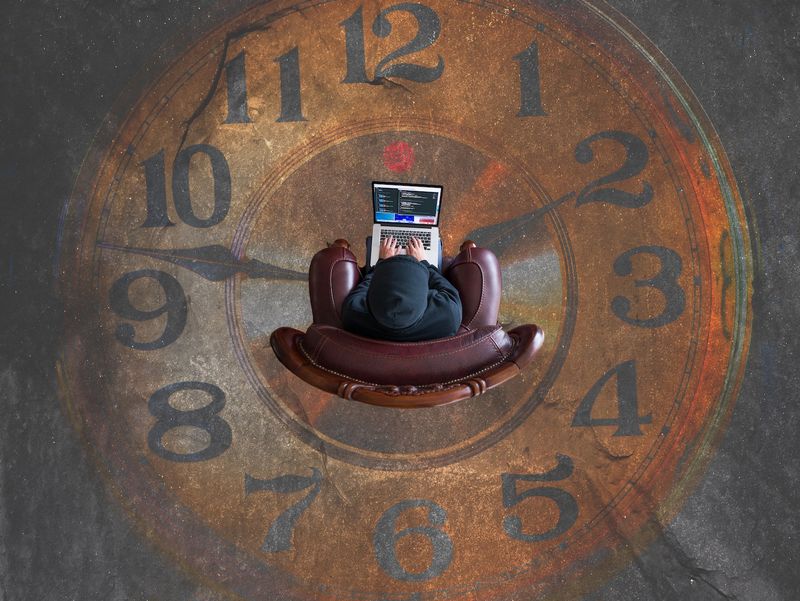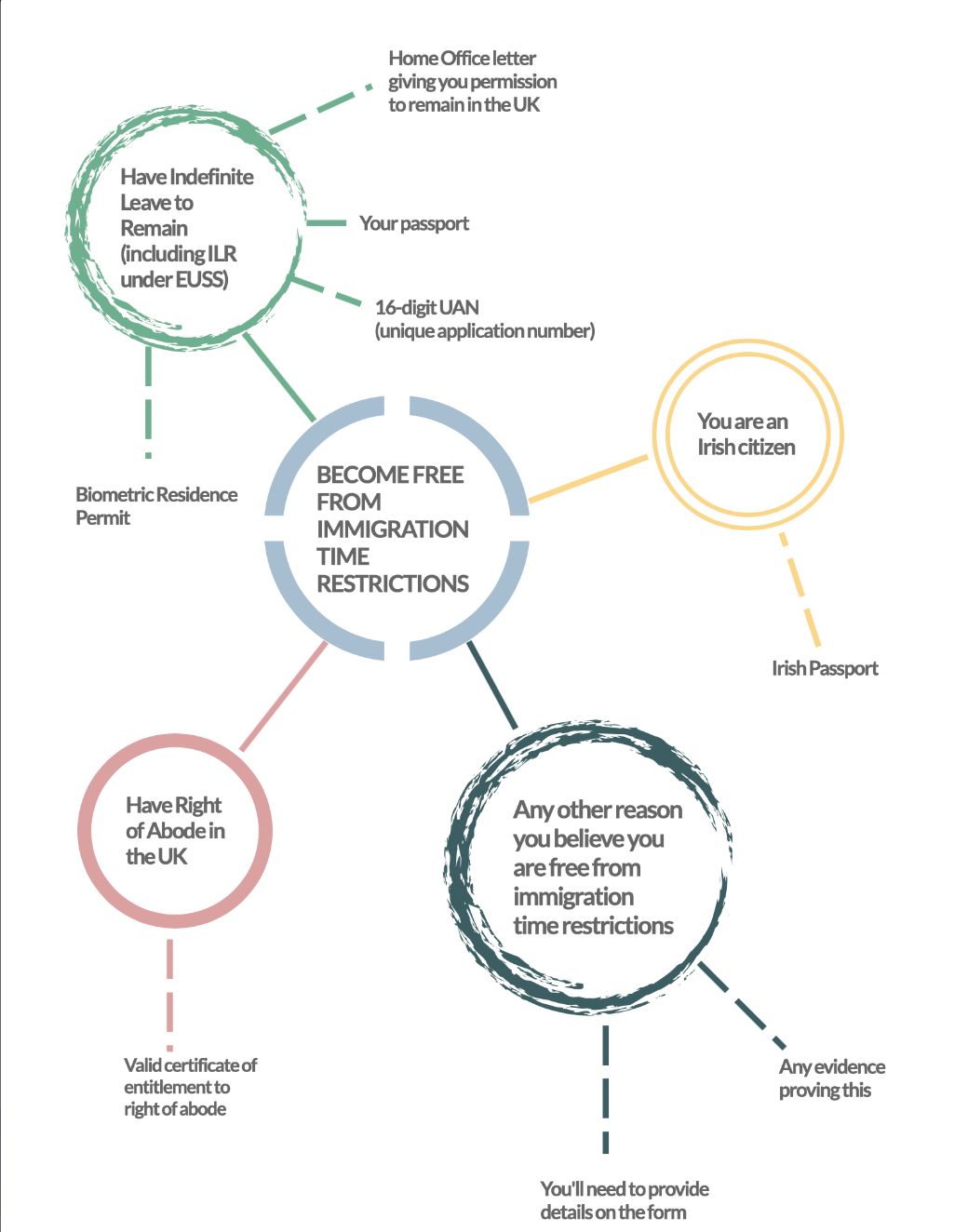
Demystifying immigration time restrictions in British citizenship applications


This post focuses on the requirement to be free from immigration time restrictions.
This is one of the criteria you will need to satisfy if you want to make a successful application for British citizenship by naturalisation.
Further information - and how-to videos - about the naturalisation process is available on our British citizenship services page.
What is the requirement?
Paragraph 1(2)(c) of Schedule 1 of the British Nationality Act 1981 says that an applicant must not have been subject under immigration laws to any restriction on the period for which he might remain in the UK.
This is confirmed in Home Office guidance which states that 'all applicants for naturalisation are required to show that, at the time of application, they are free from immigration time restrictions'.
What does it mean to be free from immigration time restrictions?
If you are subject to immigration time restrictions this basically means that there are limits placed on the length of time you can be living in the UK on a lawful basis.
Therefore, to be free from immigration time restrictions means that there isn’t a maximum period stipulated as to how long you can be in the UK.
For example, take Sarah. She is in the UK studying for a degree at a London university on a student visa. Therefore, her permission to be in the UK legally is restricted to the duration of her student visa (three years).
On the other hand, a person who is not subject to immigration time restrictions doesn't have any maximum period of time on how long they can be in the UK.
How can you be free from immigration time restrictions?
Broadly, there are three ways to be free from immigration time restrictions:
- Obtain Indefinite Leave to Remain (including ILR obtained under the EU Settlement Scheme)
- Have Right of Abode in the UK
- Hold Irish citizenship
Let's bring Sarah back into the picture. Imagine that Sarah landed a great role post-graduation and she began working in London on a Skilled Worker visa. After five years on this visa, Sarah becomes eligible to apply to Indefinite Leave to Remain (assuming the other requirements are met), meaning that she can remain indefinitely in the UK (free of immigration control).
How do you prove you are free from immigration time restrictions?
The Home Office has provided in its guidance for naturalisation a list of evidence that they say can be used to demonstrate that an applicant is free from immigration time restrictions.
The list includes the following:
-
Your 16-digit unique application number (UAN) if you've been granted indefinite leave under the EUSS
-
Your Biometric Residence Permit OR any other document which confirms your right to remain permanently in the UK
-
Your passport if it shows permission to remain permanently in the UK
-
The Home Office letter detailing the permission you were given to remain permanently in the UK
-
A valid certificate of entitlement to the Right of Abode
-
Your Irish passport (if you're an Irish national)
-
Evidence of being freely landed, if you did not receive specific permission provided that
- you were freely landed as a Commonwealth citizen before 1971 OR
- you arrived as a child on your parents’passport
The guidance also says that if you believe you are free from immigration time restrictions for any other reason, then you should provide evidence explaining this.

Do I need to be free from immigration time restrictions for any particular length of time?
All applicants will need to prove that they have been free from immigration time restrictions for a period of time.
If you are not married to a British citizen or the civil partner of a British citizen
- You will need to show that you have been free from immigration time restrictions for at least twelve months before the date you make your application.
If you are married to a British citizen or the civil partner of a British citizen
- You will need to show that you are free from immigration time restrictions on the date that you make your application.
Let's see how this would pan out with Sarah. If she was unmarried or married to a non-British national, then she would effectively need to wait a cumulative total of six years before she could make an application for naturalisation.
This is because it took her five years to be eligible for Indefinite Leave to Remain. Once she obtained this settled status, she became 'free' from immigration time restrictions. She would need to wait a further twelve months under her settled status, after which she would be eligible to apply for naturalisation.